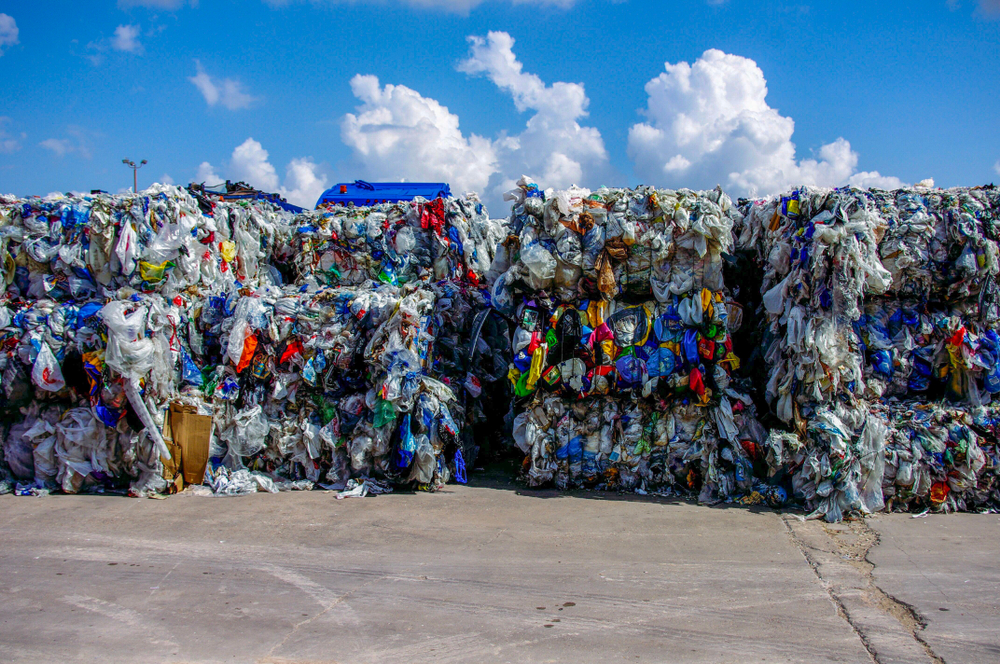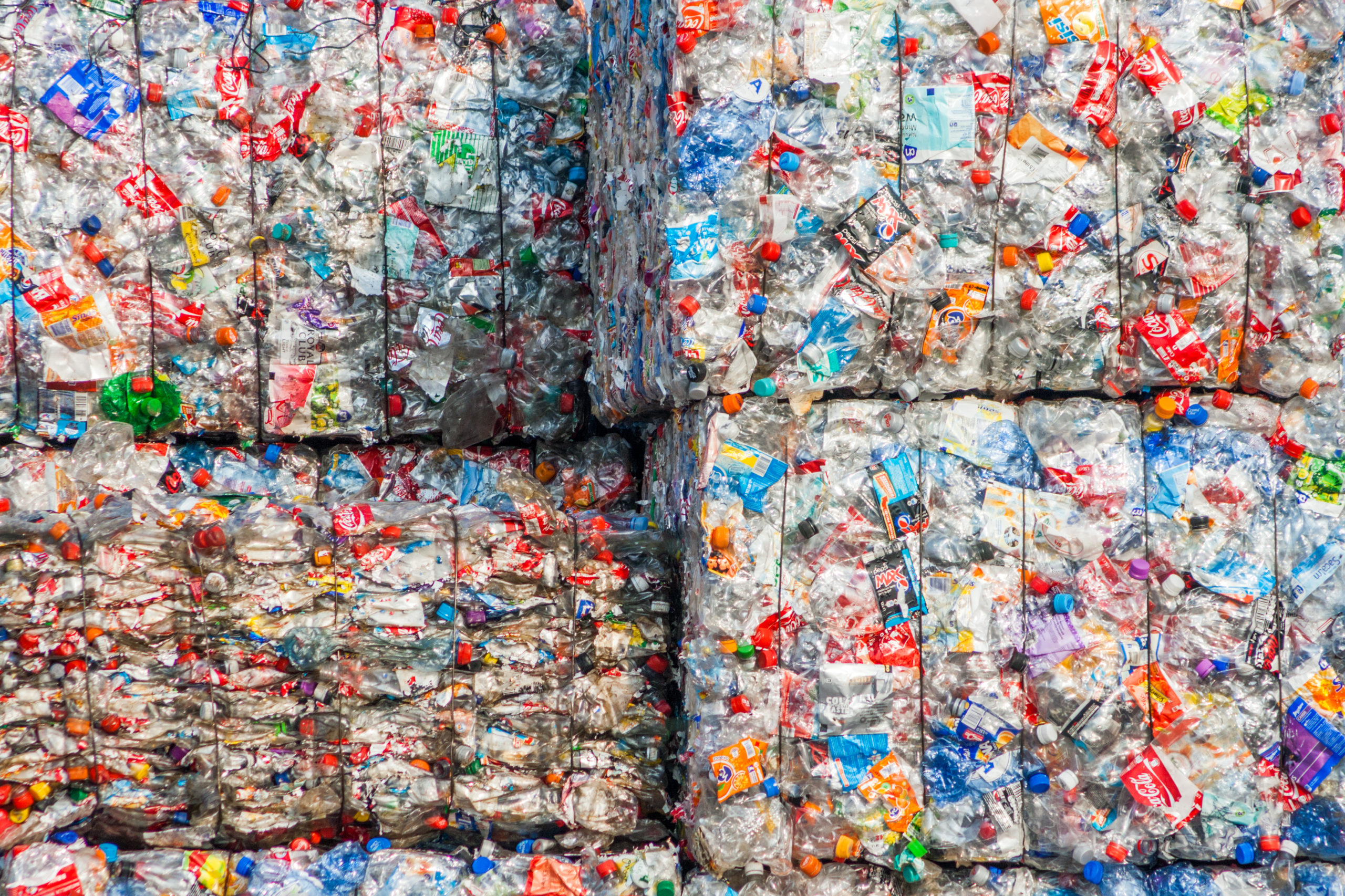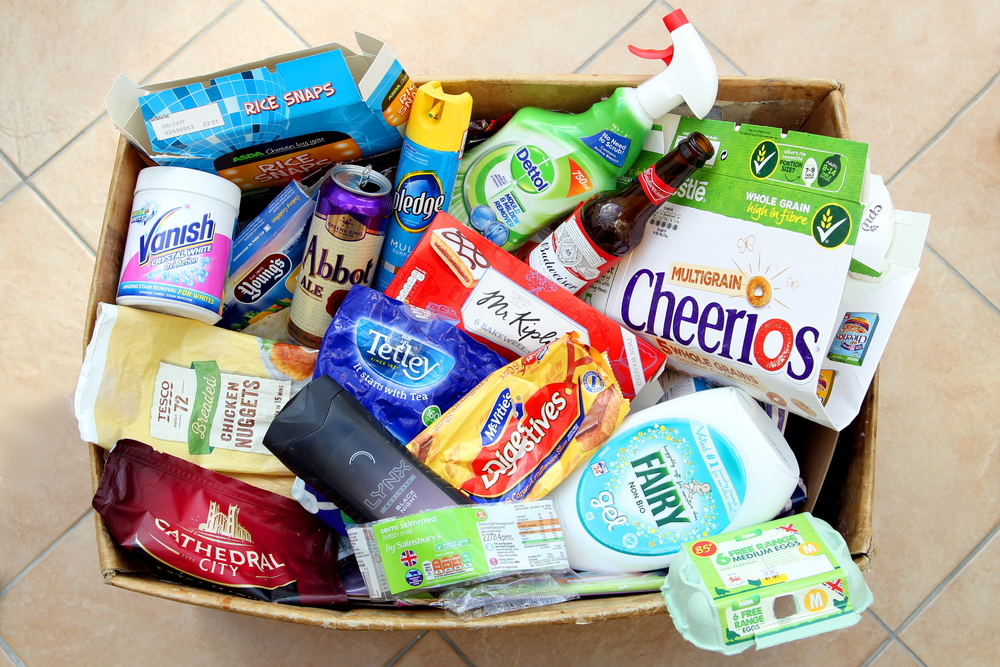OPINION: Genuinely understanding the fundamental role of plastics recycling in the economy is key to a more sustainable future.
If the goods and services we produce leave behind a vast trail of waste, this can easily outweigh their benefits to society and ultimately make the world poorer, not to mention a more perilous one.

It remains one of the biggest conundrums in the recycling world. While plastic bottles have been a feature of kerbside collections for over a decade in the UK and pots, tubs and trays have been included lately, the actual amount of recycled plastic remains low – just 44% of the UK’s total plastic packaging waste in 2021.
A cross-party committee is calling for a blanket ban on UK plastic waste exports by 2027, removing the reliance on exporting waste overseas and making it somebody else’s problem. The aim: using less plastic, reusing more of it and boosting recycling.
Due to the lack of infrastructure in the UK, far too much is still being exported – some 540,000 tonnes of it in 2020. The vast majority of the 44% that is picked up goes to mechanical recycling. Here the various polymers are sorted, cleaned, and granulated so it produces plastic flakes and pellets that can be used in many non-food and food-grade applications.
But that means a considerable amount of virgin plastic is still coming onto the market each year – effective closed-loop recycling is still some way off. And this is at a time when there is an increased demand for recycled plastic. The Plastic Packaging Tax came into effect in April this year, meaning that packaging with a recycled content of less than 30 per cent now comes with a surcharge of £200 per tonne.
Global demand for plastics is rising, spurred by the material’s barrier properties, lightweight nature, malleability, and favourable production economics. For these reasons, we expect that plastics will continue to play an important role in supply chains globally despite efforts to move away from single-use plastics.
The circular economy we all seek means the packaging we place on the market never becomes waste or pollution. It must be recyclable or reusable.
We need to eliminate the packaging we don’t need and innovate so that packaging is reusable or recyclable. Still, crucially we need to keep it in the economy and out of the environment.
A great example of a company trying to reduce through reuse is Lidl’s refill stations. Its six-month one-store pilot could save as many as 2,970 single-use plastic containers.
‘No more time to waste’
The production and use of plastics worldwide will likely increase in the years to come. The value chain and broader society have the dual objectives of eliminating plastic-waste leakage and increasing plastic circularity. These require the deployment and optimisation of waste management infrastructure and circular systems that can manage and – where possible – recycle the waste. Specific solutions vary by geography and the state of economic development. Finding the right fit-for-purpose solutions that bring together the relevant stakeholders to shape at-scale waste management infrastructure and recycling systems collectively is critical.

When presenting its sustainability credentials, the packaging industry has historically kept out of the spotlight, leaving its consumer-facing customers, such as retailers and brands, to deliver the message on its behalf about waste, recycling, and circularity.
However, with rising public and media concerns about environmental-impact issues such as ocean plastic, the sector is coming under increasing scrutiny regarding its liabilities around litter and pollution. As a result, there is now a solid case for the industry to find its voice and speak more directly and transparently to consumers.
With 19,000 people generating a turnover of more than £11 billion, this is a substantial sector – and a critical one from an environmental standpoint, responsible for collecting and managing vast volumes of refuse. However, recycling rates have begun to stall due to global markets driving down prices in the UK system, most notably for recycled plastic.
Currently, producer-manufacturers selling products in the UK have effective responsibility for funding additional recycling infrastructure via producer responsibility legislation that distributes funds across the sector. This will change profoundly with extended producer responsibility (EPR), which will transform the industry – and the UK’s entire manufacturing base.
In the past few months, it seems like things are more expensive everywhere we turn. We’re paying more for food in smaller containers. We’re shelling out more to pay for fuel and electricity. We’re also paying more for waste services.
A reality check is needed around the impact of significantly increased costs associated with recovery, transportation and reprocessing of plastics and other materials. There is more pressure than ever to deliver environmental and circular aspirations, but the economics of re-use and recycling systems must be viable and sustainable.
Costs
It costs more to collect, sort, recycle and compost than the money you make by selling the recycled or composted material. That is true for most packaging materials and across most geographies. Solving this imbalance between cost and price is something that needs urgent attention.

One of the biggest obstacles to scaling up recycling is access to sorted plastic-waste feedstock. Only 9% of plastic waste is recycled, and 22% is mismanaged. Current policies are falling short. Increasing that amount would require changes in consumer behaviour, the building out of infrastructure, and investments in recycling capacity.
In a circular economy, we need dedicated, ongoing, and sufficient funding for the collection, sorting, and recycling of packaging – otherwise, the economics do not stack up – it costs more to do than the money it makes.
A net cost exists between the collection, sorting and recycling process and the recycled materials being made available to the market. To close this gap, we need funding. Funding that is dedicated, ongoing and sufficient if we want a solution that will work in the long term.
When we say dedicated – we mean ringfenced for activities related to collection, sorting and recycling of the packaging. Ongoing means it is guaranteed on an ongoing basis, and sufficient means that there is enough to achieve the objectives we’re working towards. When you look at all other options, we see that monetary extended producer responsibility is the only proven way to provide such funding. This will ensure that the structural economic viability works. It is precisely what we need to attract and release the necessary investment to scale the processes for circulating the packaging and its material.
EPR
Mandatory EPR means that whoever introduces packaging into a country’s market also remains responsible for that packaging after its use. This creates a level playing field for all the stakeholders responsible for the packaging on the market.

Well-designed EPR is a service charge for the collection, sorting and processing. When you look at other policy solutions out there, it has proven to be one of the most efficient and effective ways of tackling the problem. When it’s designed correctly, it provides the ongoing and sufficient funding scheme we need. It drives the proper environmental outcomes by putting money into the right places. Money that’s raised in the system stays in the system. That bit is critical when you compare it to other measures.
If you introduce a tax, there is no guarantee that the money will be used as dedicated funding for sorting and processing. In theory, those who contribute to the system get a bit more value. That is important because we all want to see better infrastructure, not only to reduce leakage but to drive up recycling rates.
Some organisations have ambitious targets about the amount of recycled plastic they want to use, but that hinges on the availability and quality of the material. In terms of EPR being able to unlock that, it’s exactly what consumers want to see.
EPR will create a market that doesn’t exist beforehand. It is structural, applies to everyone, and is self-sustaining. Once we start the market, there is no going back.
We must make sure the financial incentives are present. It will turn a desire to be sustainable into a requirement for a license to operate. Once the market or eco-system begins to thrive, companies become profitable, and the interest of investors is piqued.











Subscribe for free